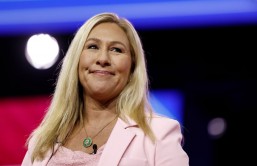As the Arctic continues to warm, sea ice is decreasing, and the tundra is expanding. Although these byproducts of climate change have many implications, one of the most interesting is the fusion of Arctic white bears and their brown cousins. Referred to as pizzlies or grolars, this unique blend of polar bears and grizzly bears has been popping up in parts of Alaska and Western Canada at an increasing rate.
Grizzly bears are terrestrial mammals, and polar bears are marine mammals, meaning they should not inhabit the same environment and should never mate. However, as the Arctic warms, sea ice is decreasing and tundra is increasing, causing these two bear populations to mate and create a whole new breed that is able to reproduce.
Experts claim that this mating choice is a matter of deciding to mate with a species close on the evolutionary tree as opposed to not mating at all. Although these two species mated thousands of years ago, the advance and retreat of glaciers stimulated by climate change means that the combination is becoming increasingly common.
It might seem like a positive choice for two species facing the hardships of climate change, but Andrew Derocher, a professor from the University of Alberta, doesn't see the hybridization heading anywhere positive for the polar bears.
"I hate to say it, but from a genetic perspective, it's quite likely grizzly bears will eat polar bears up, genetically," he said. "What we're starting to see in the Canadian Arctic is three-fourth grizzlies."
"How do they act? Probably more like grizzly bears, living on land," he added. "As climate change continues, terrestrial habitat is going to increase, and the likelihood is the habitat for grizzlies, a terrestrial bear, is going to get better. That means a longer warming period and greater food potential."
Furthermore, Derocher believes that soon, female grizzlies will start encountering male polar bears, which will continue to threaten genetic variation in polar bears.
"I suspect at the same time that that's occurring, we'll start to see polar bears on their way out," he said.
Chris Servheen, a bear biologist at the University of Montana, supports Derocher's claims and suggests that hybridization can be the final path on the road to the complete loss of a species.
"It is not a good thing for the future of polar bears that we see this hybridization occurring, and it's not going to result in some kind of new bear that is successfully living in the Arctic," he warned.








